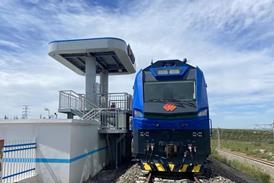Close menu
- Home
- News
- In depth
- Events
- Data
- Maps
- Tenders & Jobs
- Sponsored content
- Insights
Rail market share falling in France, says regulator
By Railway Gazette International2017-11-28T15:54:28

FRANCE: In a report on rail passenger services covering 2015 and 2016, regulatory body Arafer found that rail’s market share had fallen by an average of 0·5% a year since 2011, whereas that of other modes had increased.
Already have an account? LOG IN
To continue…
You’ve reached your limit of content for the month
Get enhanced access to Railway Gazette news and weekly newsletters.
Site powered by Webvision Cloud














